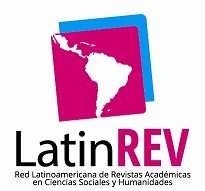Disease Mongering: determinantes sociales y salud mental en las herramientas ideológicas constructoras y propagadoras del fenómeno de “fabricación” de enfermedades mentales
DOI:
https://doi.org/10.11606/issn.2447-2158.i16p58-71Palavras-chave:
Salud Mental, "Fabricación" de enfermedades, Determinantes socialesResumo
Más que nunca el tema de la Salud está en evidencia, y no es un tema exclusivo de competencia médica, sino que se amplía al quehacer de otras disciplinas y a la sociedad como un todo. El escenario socio-político-económico mundial apunta para el llamado, por el Fórum Económico Mundial, de “el gran resert”. Los más importantes países del mundo en una agenda global, que trata temas de medio-ambiente, educación, pobreza, hambre, energía, etc., han dado un lugar de suma importancia al tema de la salud. La Salud empieza a ocupar en el escenario global un lugar de responsabilidad no solo del Estado como de toda la población mundial. En este contexto, un particular fenómeno social que ya ha echado raíces y crecido rápidamente por muchos países, alterando los discursos acerca de lo que es salud y de lo que es enfermedad vuelve a estar en evidencia: El fenómeno de patologización y medicalización de la vida, en el cual “problemas no-médicos son definidos y tratados como problemas médicos, generalmente en términos de enfermedades o desórdenes” (Conrad, 1992,p.209), y para cada enfermedad una pastilla que pueda restablecer el bienestar, de preferencia lo más rápido posible. Esta realidad no sería posible si no fuera por la fuerza ideológica de los discursos de tres actores sociales de gran importancia, que operan simultáneamente cooperando para la efectividad de la “fabricación” y propagación de “enfermedades mentales", a saber, el Modelo Médico-Hegemónico, el Manual Diagnóstico y Estadístico de los Trastornos Mentales (DSM) y los Medios de Comunicación Masivos siempre y cuando estén a servicio de la propaganda farmacéutica. El presente artículo trata de un recorrido bibliográfico en torno a los determinantes sociales en los procesos salud/ enfermedad con enfoque en salud mental, de modo a conocer las herramientas ideológicas constructoras y propagadoras del fenómeno de “fabricación” de enfermedades mentales.
Downloads
Referências
ACEVEDO. C.F.; ISTÚRIZ. O.F. (2018) Impacto de los medios de comunicación en la salud pública. Ámbitos. Revista Internacional de Comunicación, n.40, edición de primavera.
BLUMER, H. (1969) El interaccionismo simbólico: perspectiva y método, Barcelona, Ed. Hora.
BAEZA, M. (2002). De las metodologías cualitativas en investigación científico social. Diseño y uso de instrumentos en la producción de sentido " Concepción: Editorial de la Universidad de Concepción.
BOURDIEU, Pierre (1986). Notas provisionales sobre la percepción social del cuerpo. En Materiales de Sociología Crítica. Madrid, La Piqueta.
FOUCAULT, M. (1996). historia de la sexualidad. vol. i La voluntad de saber. siglo XXI editores. 24ª.ed (168).
FRANCES, A. (2014). ¿Somos todos enfermos mentales? Manifiesto contra los abusos de la psiquiatría. Editorial Ariel.
ILLICH,I. Nemesis Medica: La expropiación de la salud.
LEY Nacional de Salud Mental No 26.657, Argentina 2011, Ministerio de Salud, Presidencia de La Nación.
MARTÍNEZ, F.J.M.; LÓPEZ, T.M.T (Comp.) (2020). Análisis Cualitativo en Salud: Teoría, Método y Práctica. Plaza y Valdez Editores, México.
MENÉNDEZ, E. (1990). Morir de alcohol. Saber y hegemonía médica. Alianza editorial mexicana, México.
MENÉNDEZ, E. (2005). El modelo médico y la salud de los trabajadores. Salud Colectiva. 1:9-32.
MENÉNDEZ, E. L. Modelo Médico Hegemónico y Atención Primaria. Segundas Jornadas de Atención Primaria de la Salud. 30 de abril al 7 de mayo. Buenos Aires. 1988, pág. 451- 464.
MENÉNDEZ, E. L. (2020). Modelo Médico Hegemónico: Tendencias posibles y tendencias más o menos imaginarias. Revista Salud Colectiva de la Universidad Nacional de Lanús, Buenos Aires, vol. 16:1-25.
MOYNIHAN, R.; Cassels, A. (2006). Medicamentos que nos enferman e industrias farmacéuticas que nos convierten en pacientes. Editorial Atlántida, Argentina.
ORGANIZACIÓN Mundial de la Salud: https://www.who.int/es/about/who-we-are/frequently-asked-questions. Consultado en 23/09/2020.
PARDO. H.G. y ÁLVAREZ, M.P. (2007). La Invención de trastornos mentales: ¿Escuchando al fármaco o al paciente? Alianza editorial, Madrid.
SZASZ, T.(1994) El mito de la enfermedad mental. Amorrotus editores, Argentina.
STOLKINER, A. (2010) Derechos Humanos y Derecho a la Salud en América Latina: la doble faz de una idea potente, Revista Bilingüe Social Medicine/Medicina Social, Vol. 4 No 1.
STOLKINER, A. (2012). Infancia y medicalización en la era de “la salud perfecta”. Revista Propuesta Educativa. Año 21, Vol. 1, N.37– FLACSO (28 – 38).
STOLKINER, A. (2012). Subjetividad y Derechos: las organizaciones de usuarios y familiares como nuevos actores del campo de la salud mental. Revista Intersecciones. Año 2 No.
STOLKINER, A.(2013) Medicalización de la vida, sufrimiento subjetivo y prácticas en salud mental. Capítulo de libro. Compilador: Hugo Lerner Editorial: Psicolibro. Colección FUNDEP.
TAYLOR, S.J. y BOGDAN, R. (1987). Introducción a los métodos cualitativos de investigación: La búsqueda de significados. Editorial Paidós, Buenos Aires, Argentina.
URRAZA, M.U. La Promoción de la enfermedad: El papel de la industria farmacéutica, el papel de la mentalidad médica. Octubre de 2010.
VÁZQUEZ, H.C. (2005). Hermenéutica y Análisis Cualitativo, Cinta de Moebio Revista de Epistemología de Ciencias Sociales, 23: 204-216.
Downloads
Publicado
Edição
Seção
Licença
Copyright (c) 2024 Aridnaj de Oliveira Lima

Este trabalho está licenciado sob uma licença Creative Commons Attribution-NonCommercial 4.0 International License.
Autores que publicam nesta revista concordam com os seguintes termos:
- Autores mantém os direitos autorais e concedem à revista o direito de primeira publicação, com o trabalho simultaneamente licenciado sob a Licença Creative Commons Attribution na modalidade "Atribuição-NãoComercial 4.0 Internacional" (CC BY-NC 4.0) que permite o compartilhamento do trabalho com reconhecimento da autoria e publicação inicial nesta revista.
- Autores têm autorização para assumir contratos adicionais separadamente, para distribuição não-exclusiva da versão do trabalho publicada nesta revista (ex.: publicar em repositório institucional ou como capítulo de livro), com reconhecimento de autoria e publicação inicial nesta revista.
- Autores têm permissão e são estimulados a publicar e distribuir seu trabalho online (ex.: em repositórios institucionais ou na sua página pessoal) a qualquer ponto antes ou durante o processo editorial, já que isso pode gerar alterações produtivas, bem como aumentar o impacto e a citação do trabalho publicado (Veja O Efeito do Acesso Livre).
- Qualquer dúvida ou reclamação sobre direitos autorais devem ser direcionadas ao Conselho Editorial o qual apreciará e se manifestará conforme as diretrizes do Committee on Publications Ethics (COPE).






